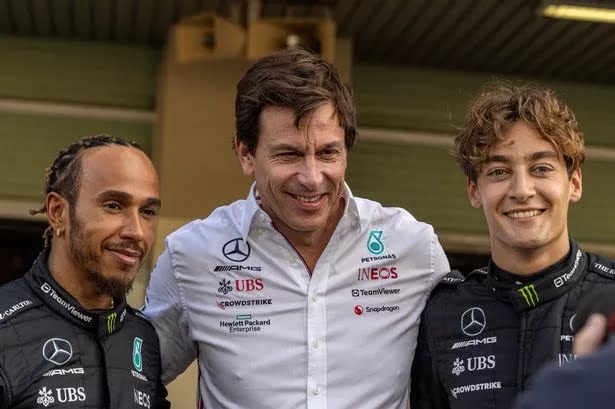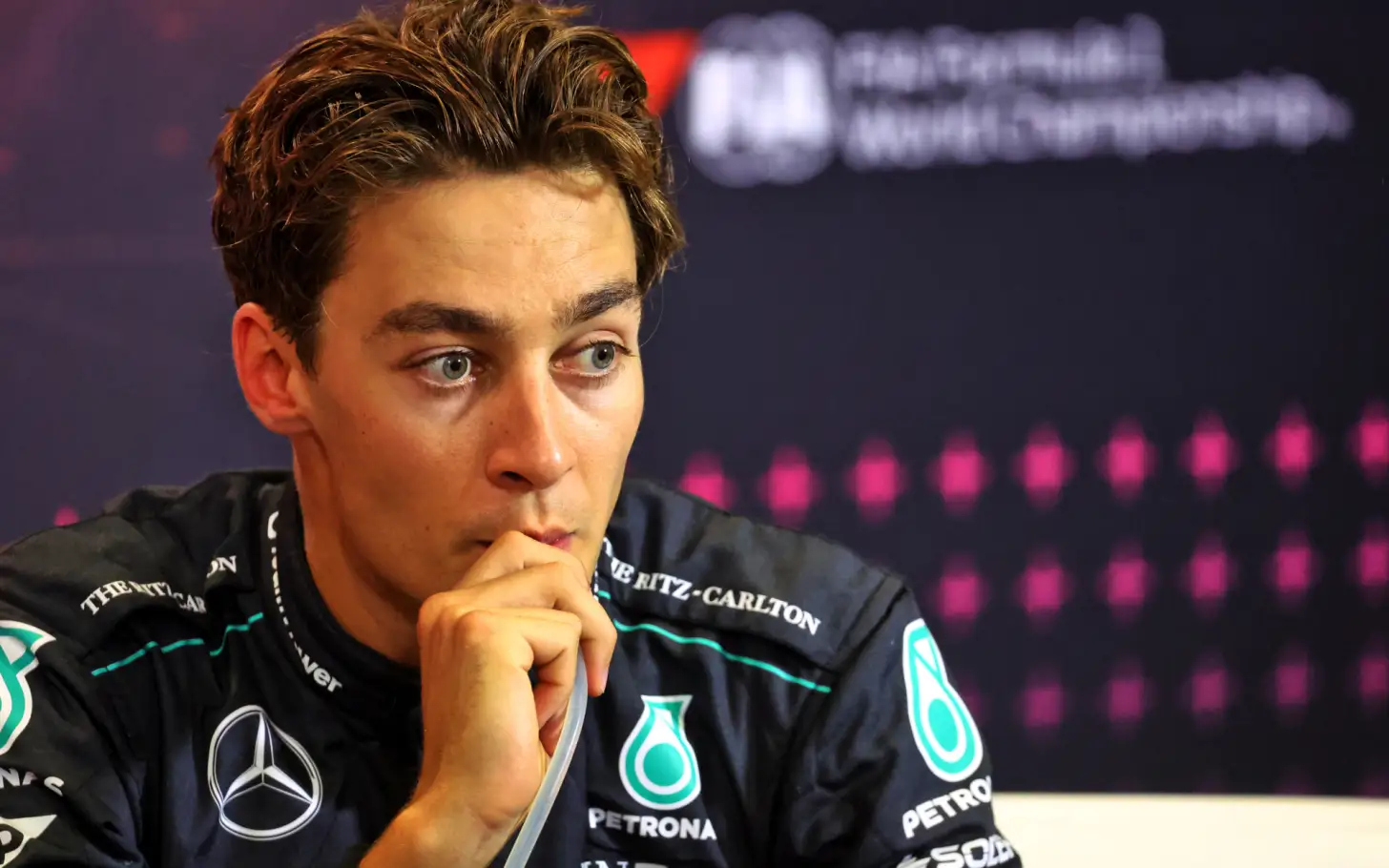Hours after crossing the line to win the Belgian Grand Prix, George Russell was disqualified as his car was 1.5 kilogrammes below the minimum weight limit, and Helmut Marko believes the natural pushing of the limits by every team happened to catch Mercedes out due to the unique way the Belgian GP ends.
Russell had put in a stellar drive to win the race at Spa-Francorchamps, judging his tyres to be able to reach the flag after his one and only pit stop to make an unlikely one-stop strategy work against his pursuers – the two-stopping Lewis Hamilton and Oscar Piastri.
Having barely held on to take the win ahead of the pair, with just two seconds covering the top three, Russell’s joy turned to dismay as the stewards found his car underweight. Checking and calibrating the FIA scales didn’t change this fact, meaning the British driver lost his victory.
Red Bull’s Helmut Marko reckons that the fact Russell was on the same tyres for so long – and the resulting rubber loss – played a big role in the disqualification, as well as the fact drivers are unable to pick up ‘marbles’, ie. discarded rubber off the racing line, as there is no cooldown victory lap at the seven-kilometre Spa-Francorchamps.
Marko revealed this can have an impact of as much as two kilos, as he wrote in his column for Speedweek.com.
“George Russell crossed the finish line first thanks to his one-stop strategy, but was then disqualified because his car was 1.5kg too light,” he said.
“The strategy was not planned that way, as you could see from the radio traffic. Such a strategy would not have been possible for us, unless the tyre had recovered – you never know for sure. Sometimes the tyres collapse and then recover. But you can see that Russell made the right choice by the fact that he set his fastest lap on the last lap.
“I think the one-stop strategy contributed to his car being too light at the end. They didn’t expect that, and because he was on the same set of tyres for so long, there was obviously a lot less rubber on them. At Spa, the drivers don’t have the opportunity to collect rubber on a final lap. You can pick up two kilos there.
“I don’t know whether the spectators notice that the drivers always drive on the dirty track at the end so that they can put as much weight on the tyres as possible. Maybe they didn’t have that in their calculations either.
“It’s in the nature of things for a Formula 1 team to operate close to the weight limit. After all, ten kilos make up three-tenths – and at Spa it might even be four. So it’s clear that you try to get as close to the limit as possible. And if something goes wrong, you’re already at the limit – or even below it.”
While Red Bull was out of the fight for victory at Spa-Francorchamps, Marko believes this was solely down to the fact Verstappen started the race from 11th due to an engine grid penalty.
On pace, the Dutch driver could have been right up there instead of having to put in a recovery drive, Marko said.
“Max Verstappen finished fifth at Spa after his grid penalty and then moved up to fourth place following George Russell’s disqualification,” he wrote.
“If he had started from pole position, which he had achieved the day before, then victory would have been possible. But as he had to start the race from 11th on the grid, it was difficult because you could see how difficult it was to overtake in Belgium.”
While Verstappen has previously put in stunning recovery drivers at Spa after similar grid penalties, Marko said the going was much more difficult on this occasion.
“It wasn’t just down to the shortened DRS zone,” he said.
“It’s the current cars that generate so much downforce that it’s incredibly difficult to drive behind.
“The front tyres overheat and you either manage an overtake in the shortest possible time or you don’t, as you saw with Lando Norris.”



